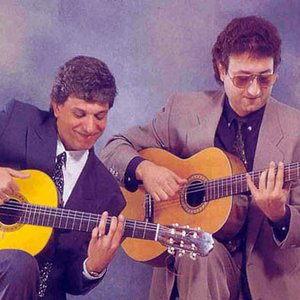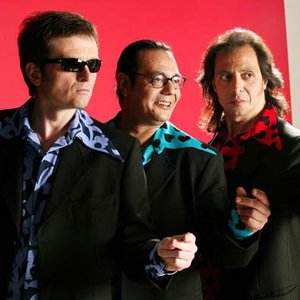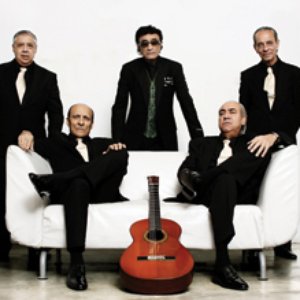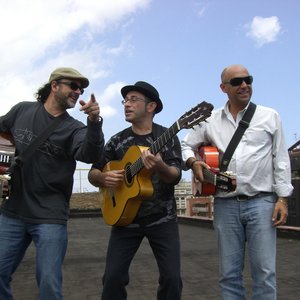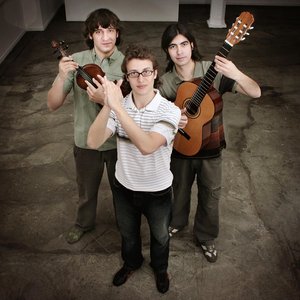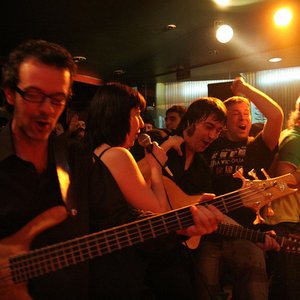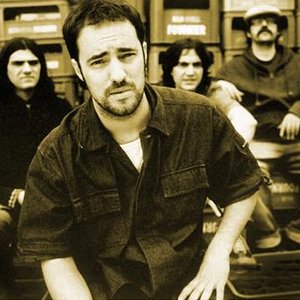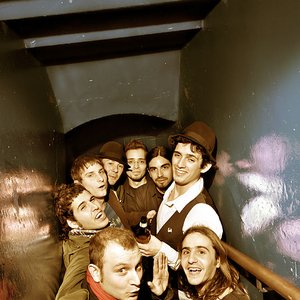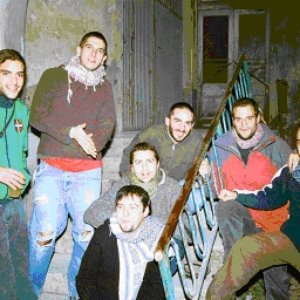Biography
-
Born
11 April 1951
-
Born In
Buenos Aires, Argentina
-
Died
18 October 1990 (aged 39)
Xavier Patricio Pérez Álvarez (Buenos Aires, Argentina, April 11, 1951-Caldes de Montbui, Barcelona, Spain, October 18, 1990) artistically known as Gato Pérez, was an Argentine musician established in Catalonia, who stood out especially in the musical genre of the Catalan rumba that he fused with salsa. He was a singer, composer, and played both the guitar and bass.
Gato Pérez was delivered via a caesarean birth in Buenos Aires and spent his formative years in an upper-middle-class neighborhood. He attended a bilingual school that catered to the children of the industrial and financial bourgeoisie of Buenos Aires, a group which he absolutely despised. Pérez's early exposure to music was with his grandfather, with whom he listened to the radio and the popular serials of the sixties. It was through the radio that Pérez was introduced to the revolutionary sounds of Bill Haley and His Comets, which had a profound impact on him. Pérez's first public performance was at his English school's prom, where he played songs that were popular at the time such as "Claudette" and "Wake Up Little Susie" by the Everly Brothers.
Argentina experienced an earlier influx of rock and roll music than Spain, and Argentine musicians, including Pérez, were quick to master the genre and ignite the stage with their performances. This early experience would prove crucial, as the same Argentine musicians were instrumental in introducing fresh and distinctively Hispanic rock music during Spain's Transition period. Prior to arriving in Spain, Pérez was involved with a pampera music group called Los Baguales, and upon settling in Barcelona, he followed the rock groups Los Salvajes and Los Cheyennes.
In 1966, Gato Pérez arrived in Barcelona accompanied by his mother to join his father, who had migrated there earlier. Following the completion of his high school education, he relocated to London in search of employment in the record industry. However, his efforts proved futile, and he returned to Barcelona where he secured work as a butler, owing to his impeccable English language skills. Pérez's nickname "Gato" was derived from his round facial features.
Pérez's first musical project in Barcelona was Revelación Mesmérica, which later underwent a name change to Nosaltres, and eventually, Pérez y Zaragoza, reminiscent of the Simon & Garfunkel duo. In the early 1970s, Pérez's artistic curiosity led him to establish various musical groups such as Slo-Blo, a country rock ensemble modeled after the Flying Burrito Brothers, and Secta Sónica, a jazz rock group partly inspired by Slo-Blo.
Pérez was instrumental in founding the Orquestra Platería, a salsa music and dance band created for street parties in Barcelona in 1974. In 1977, Pérez commenced his exploration of Catalan rumba, culminating in the release of his first two albums, Carabruta and Romesco, followed by the more commercially oriented Atalaya. As noted by Carlos Flaviá, "An Argentine prophet had to come to unite the gypsies here."
In 1981, Pérez was beset by a heart attack that necessitated him to confront serious health issues, including fatigue resulting from his heart condition that forced him to relinquish alcohol. Pérez's subsequent musical productions were, in his own words, "composed under the effects of mineral water."
Despite ongoing health challenges, Gato Pérez continued to work until his passing in 1990 due to a myocardial infarction. His contributions to the music industry have been commemorated through various tributes. Filmmaker Ventura Pons, who previously collaborated with Pérez on the soundtrack for La rubia del bar, directed a documentary on the musician's life titled El gran Gato.
Pérez has been lauded for his contributions to the renovation of Catalan rumba, a genre undergoing a decline at the time due to the robust influence of the movida movement in Madrid.
Artist descriptions on Last.fm are editable by everyone. Feel free to contribute!
All user-contributed text on this page is available under the Creative Commons Attribution-ShareAlike License; additional terms may apply.

